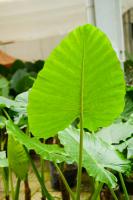Can I Feed My Coffee Plant Tap Water?
Coffee plants are not only popular for their fragrant flowers but also for their use in producing one of the most consumed beverages worldwide: coffee. These plants, native to tropical regions, grow best in areas with high humidity, moderate temperatures, and well-draining soil.
One of the most common questions among coffee plant owners is whether they can use tap water to feed their plants. Tap water is the water that comes out of your household faucets, which is treated and often contains chemicals such as chlorine, fluoride, and other minerals.
While tap water may not pose an immediate threat to your coffee plant's health, it can have some negative effects over time. Here are some of the potential problems with using tap water for your coffee plant:
Chlorine and Fluoride Content in Tap Water
Most tap water contains chlorine that is added to disinfect it from bacteria and viruses. Chlorine can evaporate from the water, but it can take some time. When you water your coffee plant with chlorinated water, the chlorine may burn the plant's roots, leaving them damaged and unable to absorb nutrients from the soil.
Fluoride is also commonly added to tap water to keep teeth healthy. However, in excess amounts, fluoride can harm your coffee plant by stunting its growth and causing yellow or brown discoloration on the leaves.
Minerals in Tap Water
Some tap water may contain minerals such as calcium, magnesium, and sodium. These minerals can negatively impact your coffee plant's health by causing mineral buildup in the soil, leading to poor drainage and root rot. The buildup of minerals can also block the plant's ability to absorb essential nutrients, affecting its growth and development.
What Water Should You Use for Your Coffee Plant?
If you want your coffee plant to thrive, it is best to use filtered or distilled water. These types of water don't contain harmful chemicals and minerals that can harm the plant's health. You can also collect rainwater or use bottled water for your coffee plant, but this can be costly in the long run.
When watering your coffee plant, be sure to water it thoroughly and let any excess water drain out of the bottom. Overwatering your plant can lead to root rot, which can be detrimental to your plant's health.
Conclusion
In summary, while you can use tap water to feed your coffee plant, it is not recommended as it contains harmful chemicals and minerals that can harm the plant's health over time. To ensure that your coffee plant grows healthy and strong, provide it with filtered or distilled water, collect rainwater or use bottled water. Remember to water your plant thoroughly and avoid overwatering to prevent root rot.

 how many times do yo...
how many times do yo... how many planted tre...
how many planted tre... how many pine trees ...
how many pine trees ... how many pecan trees...
how many pecan trees... how many plants comp...
how many plants comp... how many plants can ...
how many plants can ... how many plants and ...
how many plants and ... how many pepper plan...
how many pepper plan...






























